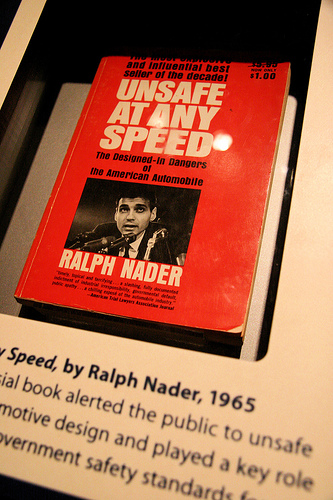In the previous lesson, we dealt with nonmarket strategy in the arena of public politics, where firms and interest groups compete in the context of the institution of government for advantage on an issue. In this lesson, we will focus on private politics, when the competition between firms and other stakeholders takes place outside of the context of the institution of government
In this lesson, we will also carry forward with the RPS Case study. In parts 1 and 2 we established the issue and background, identified stakeholders, and assessed the demand for and supply of nonmarket action for each. In part 3 of the RPS Case Study, we will consider nonmarket strategy options based on the results of our issue analysis.
An Introduction to Private Politics (Baron, 2010, p. 90-91)

Many nonmarket issues are addressed in public institutions, …, which deal with lawmaking, regulation, and the legal system. The competition between firms and other interests [stakeholders] over the resolution of these issues in the context of the institutions of government is called public politics. Other nonmarket issues are addressed largely outside, but often in the shadow of, public institutions. These issues are advanced by the strategies of individuals, firms, interest groups, activists, and NGOs [non-government organizations] and range from direct pressure, as in the case of consumer boycotts, to attempts to influence public sentiment. The competition between a firm and these other groups over the resolution of issues outside of government institutions is called private politics.
Private politics can be motivated by self-interest as well as by broader concerns. In some cases, it arises because an individual becomes concerned about an issue, as in the instance [...] of the person who telephoned Larry King and said that his wife had died from brain cancer caused by radiation from heavy use of a cellular telephone. More often, private politics originates from interest groups, as when the U.S. labor unions act to demand higher wages and improved working conditions in the overseas factories supplying the apparel and footwear industries. [ …] Private politics is also initiated by activists, advocacy groups and NGOs that serve the interests of others in addition to the interests of their members. The causes these individuals, interest groups, and NGOs pursue are important components of the nonmarket environments, and the issues on their agendas are frequently thrust onto the agendas of firms. Understanding their concerns, organization, and strategies is essential for formulating effective strategies to address the issues they advance and the pressures they generate.
Private politics affects the issues, interests, institutions, and information that comprise the nonmarket environment. First, those initiating private politics can identify issues about which management either is unaware or has not understood as important to others, as in the case of the possible health risks from cellular telephone radiation. Similarly, the actions of Greenpeace calling attention to Shell UK’s plan to sink the oil storage platform, Brent Spar, in the North Atlantic generated intense private politics in Europe even though the plan had been approved by the UK government. Individuals and interest and activist groups thus play an important role in setting the nonmarket agendas of firms and in advancing issues through their life cycles. Oil companies now involve stakeholders as well as governments in developing disposal plans for oil platforms. Moreover, the issues these groups raise and the concerns they express may point in the direction of more effective and responsible management.
Second, these groups can affect the organization of interests by forming watchdog and advocacy groups and by mobilizing people to work for causes. These groups have been instrumental in advancing the causes of environmental protection, health, and safety protection for consumers, and civil and human rights. These organizations are an increasingly important component of the nonmarket environment.
Third, the pressure these groups exert can affect the institutional configuration of the nonmarket environment. In public politics their actions have led to new laws, expanded regulatory authority, court orders, legislative oversight activities, and executive branch initiatives. These groups were the prime movers behind the creation of the Environmental Protection Agency and the Consumer Products Safety Commission, and organized labor worked for the creation of the Occupational Safety and Health Administration [OSHA]. In private politics, activists have spurred the formation of private governance organization such as the Fair Labor Association and the Forest Stewardship Council, which govern the private regulation of labor practices in overseas apparel and footwear factories and in timber harvesting and forest management, respectively. This private regulation has been growing as an alternative to government regulation.
Fourth, individuals, interest groups, and activists provide information that influences public and private politics. Rachel Carson’s Silent Spring [a book, published in 1962 and credited by many as starting the environmental movement] spurred the environmental movement by calling attention to the harmful effects of DDT. Activists at the Earth Island Institute spurred a public outcry and boycotts of tuna products when they produced a film showing dolphins drowning in nets used to catch tuna.1The news media plays a major role in disseminating this information, and an important component of private politics strategies is to attract media coverage. […]
Regardless of whether these groups are right in their causes, their actions can damage a firm, its reputation, and its constituents. Some products, rightly or wrongly, have been doomed by the actions of activists. Ralph Nader’s attacks on the safety of the General Motors Corvair, for instance, contributed to the car’s elimination. Activists have been vocal opponents of agricultural biotechnology, causing delays in new products and increased costs. The strength of activists groups varies across countries. The opposition to agricultural biotechnology has remained moderate in the United States, as more products have been brought to market without the harmful effects claimed by their critics. Opposition to agricultural biotechnology, however, remains strong in much of Europe. Because of private politics, a major Swiss pharmaceutical company located biotechnology units just over the French border and connected those units by pipeline to its plant just inside Switzerland. In effect, the plant lies on both sides of the border with the biotechnology components located in France.
1Putnam, Todd. (1993). “Boycotts are Busting Out All Over.” Business and Society Review, 47-51.
To Read Now
At this point, please complete Reading Assignment 3--Private or Public Politics? (Baron, 2010, 95-96), located in the Lesson 3 module in Canvas.

